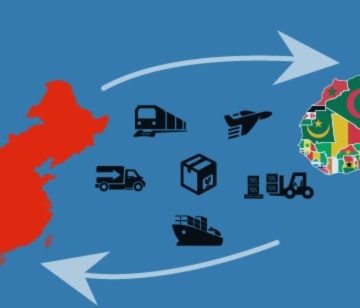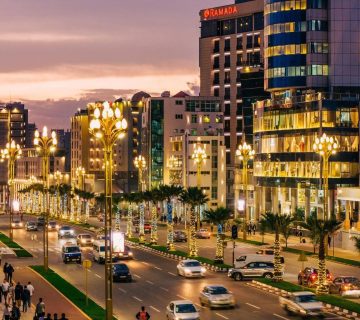On the 4th and 5th of June 2024, South Korea hosted 48 African government representatives, alongside various stakeholders for its inaugural Korea-Africa summit. According to the organizers, the two-day summit was aimed at deepening cooperation in trade and technology between the host and the African countries. The summit occurred in the wake of a growing appetite for engagement with African governments by global powers. The latter is evident in events such as the 2023 Russia-Africa Summit, the 2024 US-Africa Business Summit held in May, the India-Africa Forum and Forum on China-Africa Cooperation (FOCAC) summits, the last two scheduled for later this year.
Historically, South Korea and most African countries share a common background of colonization and the struggle against poverty dating back to the 1970’s. South Korea however overcame the huddles and rose to become a high-income economy in the early 2000’s. Similar to its Asian neighbors (China, Japan, Russia and India), South Korea appears to be on the trajectory of expanding its global influence by leveraging its relationship with African countries. Although the Summit goes along way in promoting the economic growth of some African countries, the latter need a unified approach to such engagements in the future, so as to avoid assymetrical gains in favor of the global powers.
Trade, Investment and Development Opportunities
Through the summit, South Korea was keen to capitalize on Africa’s vast supply of key mineral reserves. Africa is a major source of nickel, cobalt, graphite and lithium, all which are crucial in the manufacture of semiconductors, batteries and electric vehicles, which are among the major export items for South Korea. Securing a stable supply of the mentioned minerals will therefore be crucial for the Asian country, owing to concerns that it would experience future challenges in securing a stable supply of the mentioned minerals. It is against this background that Tanzania signed two accords, granting South Korea access to its ocean resources and minerals crucial for clean energy technologies, such as nickel, lithium, and graphite.
At large, Africa will benefit from increased official development aid worth USD 10 billion. The amount pledged by South Korea is relatively large, especially for a single country, when compared to the total USD 50 billion that Africa received from all its donors in 2022. Besides official development aid, South Korea committed USD 14 billion in export financing to promote trade and investment for South Korean companies in Africa. The move occurs as an attempt to bolster trade between the two regions, since trade with African countries currently accounts for less than two per cent of South Korea’s total imports and exports.
The Summit employed a mixed format consisting of a roundtable, plenary and bilateral sessions, thus providing for bilateral agreements with either the host country or other stakeholders. Kenya, Uganda, Tanzania and Ethiopia all from the Horn region, were huge beneficiaries of such agreements signed during the Summit. Kenya and South Korea signed a USD 485 million (KSh63 billion) concessional development funding on the sidelines of the Summit. Uganda also secured a USD 500 million loan which will be directed towards the development of infrastructure. Similarly, Ethiopia confirmed a USD 1 billion financing deal over four years to support infrastructure, science and technology, health and urban development. Tanzania on the other hand will borrow USD 2.5 billion over the next five years through concessional loans. It is worth noting that the heads of government from Tanzania and Ethiopia alongside their counter part from Sierra Leone, received separate State visit invitations to South Korea during the same period.
Political Implications of the Summit
In as much as the Summit’s objectives were centered around trade and technological investment, South Korea leveraged on the Summit to make significant political gains. South Korea seized the opportunity to rally for collective action by the African countries towards North Korea. In a joint statement issued by South Korea and the African countries, the aforementioned reaffirmed their commitment to the full implementation of U.N. Security Council resolutions against North Korea. The move to further isolate North Korea diplomatically occurs in the wake of heightened diplomatic tensions between the two after North Korea provocatively released balloons filled with trash into South Korea’s territory.
Besides the regional politics, South Korea aims to leverage on the Summit to progressively increase its influence on the African continent. In his welcoming statement, Cho Tae-yul, South Korea’s Foreign Minister, stated “Africa is a key partner for Korea in realizing its foreign policy aspiration of becoming a Global pivotal state.” The Asian country will be able to do this through the economic partnerships, development and aid programs that it intends on rolling out within the continent. In retrospect, African countries have demonstrated allegiance to external powers that contribute towards their development. South Korea will hence seek to capitalize on this same strategy that China used to yield influence on Africa, through various development projects undertaken through the Belt and Road Initiative (BRI).
Cordial Korea-Africa relations catalyzed by this Summit are likely to increase South Korea’s collective bargaining power at the United Nations. With the traditional backing of the United States, alongside the projected backing of African States as a result of the Summit, South Korean interests at the UN Security Council and General Assembly respectively are assured.
How Can Africa leverage on Such Engagements in the Future?
African countries need to engage with external powers through its regional organizations. When this happens, chances of being shortchanged or being used as pawns are reduced as compared to during bilateral agreements. As it is, most of the African countries lack faith in institutions such as the African Union (AU), a greater reason as to why they prefer bilateral engagements. As a way of strengthening the AU, member states need to consistently honor their monthly remittances. The latter will facilitate smooth institutional operations while reducing dependence on external aid in running operations.
Jeremy Oronje is a Research Intern at the HORN Institute.
Photo Credit: The East African
The views expressed in this article are those of the authors and they do not necessarily reflect the position of the HORN Institute.



